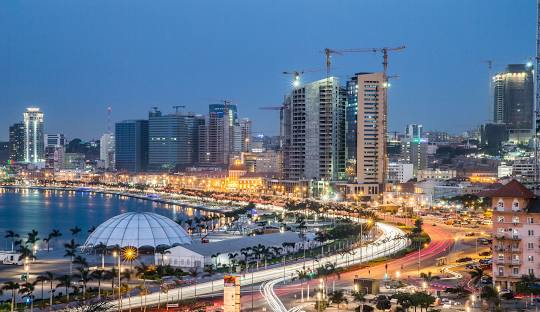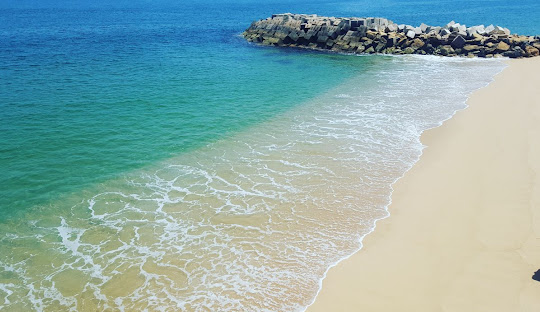



Luanda, the capital of Angola, is a port city on the west coast of Southern Africa. A seafront promenade known as the Marginal runs alongside Luanda Bay. Nearby is the well-preserved 16th-century Fortress of São Miguel, which now contains the Museum of the Armed Forces. The fort has views of the harbor and the Ilha do Cabo, a long, thin peninsula in the bay that’s home to beaches, bars and restaurants. ― Google
The dry season from May to October is ideal, with warm temperatures and less humidity.
The rainy season runs from November to April, with occasional heavy showers.
Luanda is served by Dr. Antonio Agostinho Neto International Airport, the main gateway connecting to major African, European, and Middle Eastern cities.
Within the city, taxis and minibuses are common for local transport, though traffic can be congested.
Fortaleza de São Miguel: A historic fortress overlooking the city, offering insight into Luanda’s colonial past.
Ilha do Cabo: A popular peninsula with beaches, resorts, and vibrant nightlife.
Museu Nacional de História Natural: Showcases Angola’s natural history, including wildlife and geology.
Quilombo dos Palmares: Cultural sites and markets where local crafts and traditions are celebrated.
Marginal Avenue: A lively seaside promenade perfect for walking, dining, and people-watching.
Explore local markets for crafts, textiles, and souvenirs.
Relax on the beaches of Ilha do Cabo.
Experience live music, especially local genres like Kuduro and Semba.
Visit museums and cultural centers to learn about Angola’s history and art.
Enjoy dining at restaurants serving traditional Angolan cuisine.
Luanda offers a range of hotels from luxury international chains to more modest guesthouses.
Many upscale hotels are near the city center and along the waterfront.
Angolan cuisine features dishes like funge (a cornmeal staple), grilled fish, and stews rich in palm oil and spices.
Fresh seafood is abundant thanks to Luanda’s coastal location.
Local eateries and international restaurants serve a variety of flavors to suit all tastes.
Luanda is known for its dynamic music scene, with lively rhythms that are central to social life.
The city is a melting pot of traditional Angolan heritage and modern urban influences.
Portuguese is the official language, and hospitality is an important part of the culture.